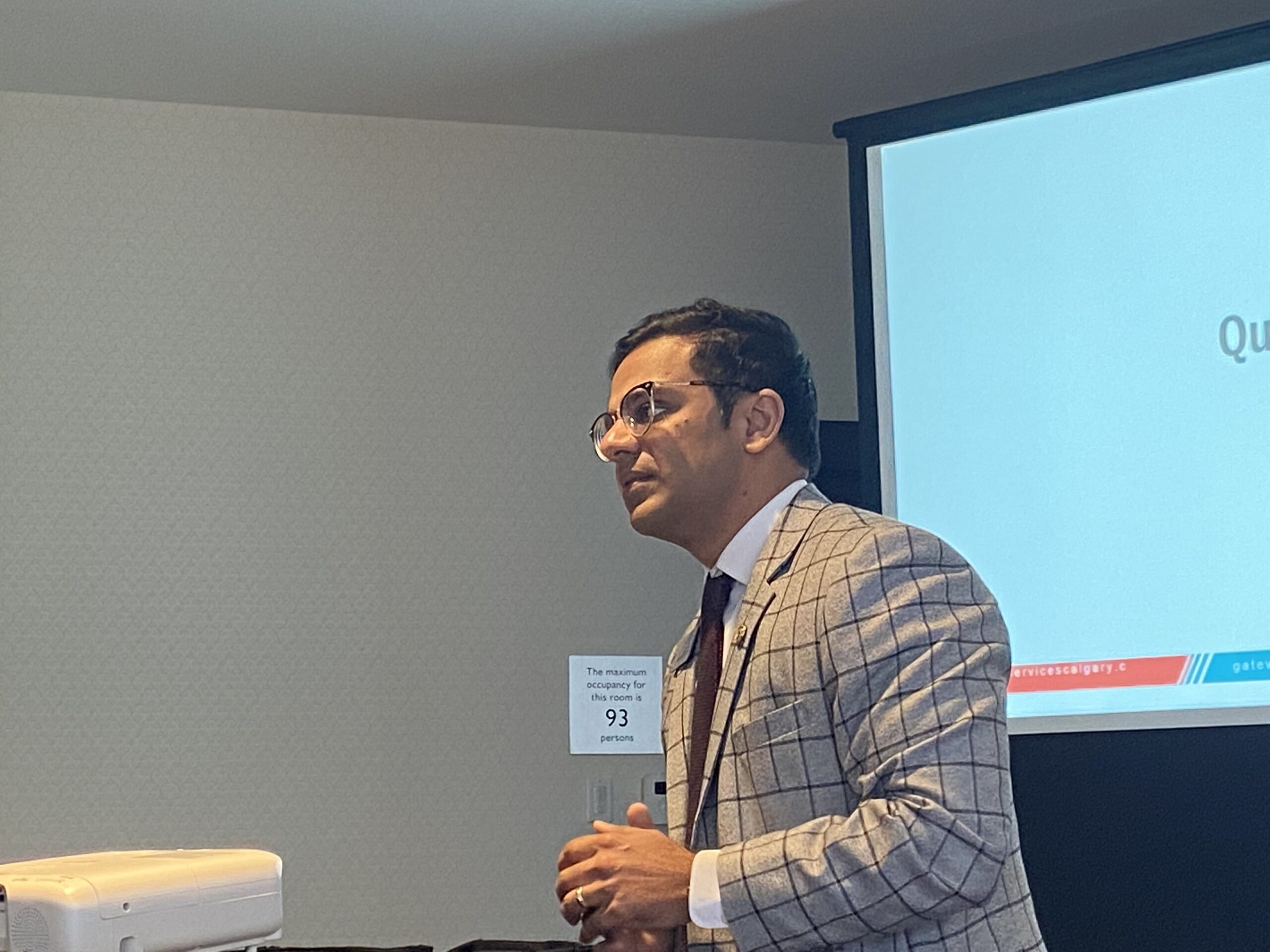Northeast Calgary has the highest first dose vaccine coverage in the province, with 99.3 per cent of eligible residents vaccinated, differing greatly from the “unenviable” distinction it held in 2020 as a hotspot for COVID-19.
Due to this distinction, the area’s predominantly South Asian residents were erroneously scapegoated for the virus’ spread in Alberta during the beginning of the pandemic.
Alka Merlin, Director of Communications and External Relations at Immigrant Services Canada, shared the importance of not dismissing cultural differences during the 24th Metropolis Canada Conference in Vancouver on March 26.
“The problem here wasn’t their cultures and beliefs. The problem was that nobody was talking to them in a way that they could understand so that they could help the rest of the community.”
Immigrant Services Canada, collaborated with other organizations in the city’s settlement sector to form the Calgary East Zone Newcomers Collaborative (CENC), a group that helps provide newcomers and ethnocultural communities with support for COVID-19 related needs.
Through this collaborative group, health services, government, and settlement agencies developed coordinated systems to provide support to more newcomers and immigrant clients during the pandemic.
Changing the narrative
When COVID-19 cases were surging in Alberta in November 2020, Premier Jason Kenney suggested that large family gatherings within the South Asian community were to blame for the virus’s rapid spread.
“We know that it’s a tradition to have big family gatherings at home and we think this is one of the reasons why we have seen a much higher level spread in the community than other parts of the population,” Kenney stated in an interview with Calgary radio station Red 106.7FM.
Then-Calgary mayor Naheed Nenshi admittedly didn’t take Kenney’s insinuations well. Instead, Nenshi pointed out that many in northeast Calgary lacked the privilege of working remotely.
“The reason our COVID infection rates were so high was not because we were inviting random strangers over for chai and samosas,” Nenshi shared during the opening of the Metropolis Canada Conference. “But because we had to go to work every day. Because we didn’t have the luxury of working from home. Because we were now called by that highfalutin term ‘essential workers.’”
Immigrant Services Calgary CEO, Hyder Hassan, noted that when data is missing, it becomes easy to intentionally or unintentionally weaponize incomplete information against certain groups — and to him, this narrative makes it more difficult to adequately reach ethnocultural communities in times of need.
“Our data set was showing that two populations [had] the most cases: Vietnamese populations and Filipino populations. Why? multi-generational homes, frontline heroes did not have the privilege to work from home like we did,” Hassan said during the conference. “If you don’t change the narrative, you are going to get a narrative outside of this room that you may not like.”
Merlin further highlighted that high case numbers were not based on cultural differences between immigrants and non-immigrants, but rather the risk of infection in certain working environments and the precariousness of certain sectors.
Merlin explained that in Calgary, immigrants represent 60 per cent of transit and ground transportation workers, 40 per cent of manufacturing workers, 64 per cent in food manufacturing and 37 per cent in healthcare and social assistance.
“They make up one-third of the Calgary workforce. They’re working multiple jobs. They’re on the front lines,” said Merlin.
Trust of the community
To ensure that communities that were most at-risk of COVID-19 had adequate information and services provided to them, organizations that previously had not had direct contact with one another began relying on each other. This system meant that newcomers also gained access to more means of support and could directly interact with specialized services better suited to their needs.
“If I’m a client and I’m going to 10 different agencies, telling my story 10 different times and trying just to get the different supports that I need, it’s a lot of time wasted,” Merlin said. “Once you’re a partner [of the collaborative], all the agencies have access to the same platform … so they know what this person needs, they’re providing them with the exact kind of support that they need and ensuring that they’re referred to the best fit agency.”
In combatting the COVID-19 pandemic, the CENC developed resources so that immigrants could speak to someone in the language they’re most familiar with. When vaccines became widely available in Canada, the CENC had the broad trust of the community and could address vaccine hesitancy, provide information, and get people vaccinated when available.
“I think that’s the beauty in this collaboration … you’re not replicating efforts and you’re not wasting time,” Merlin said. “You’re increasing the amount of time you’re actually spending helping people get what they need so that they can actually build the lives that they envisioned for themselves when they first arrived in Canada.”
Alec Regino is a freelance journalist based in Vancouver, BC. He was a Reporting Fellow for the Pulitzer Center on Crisis Reporting in 2021.





